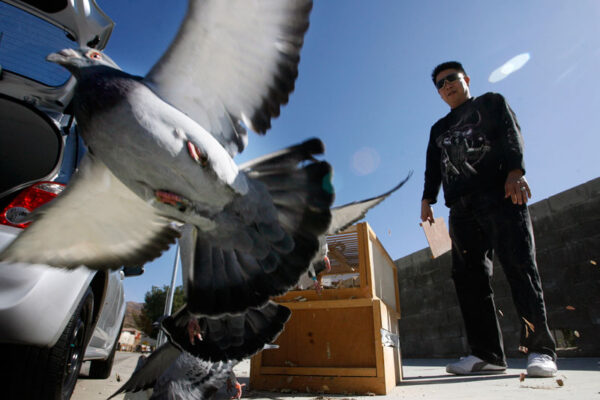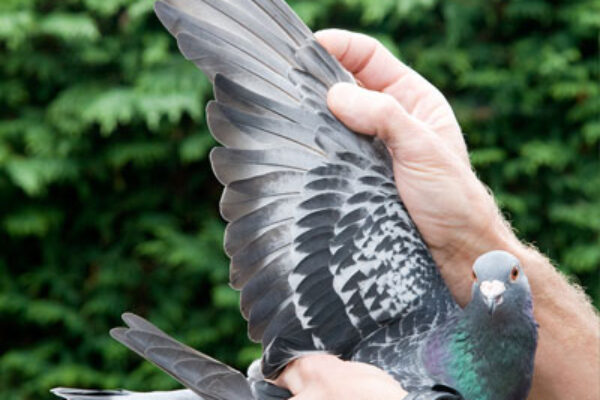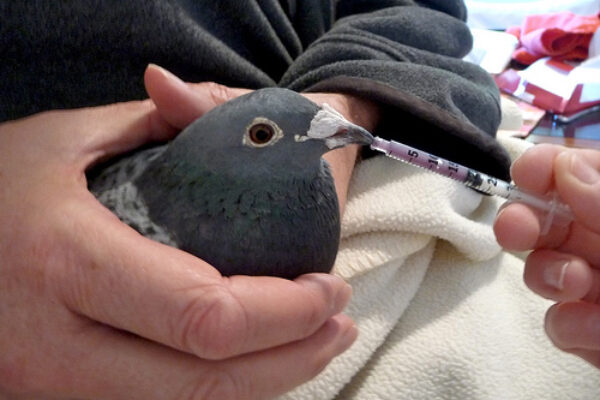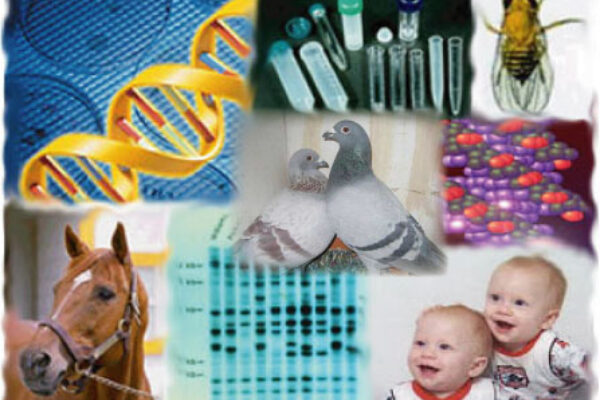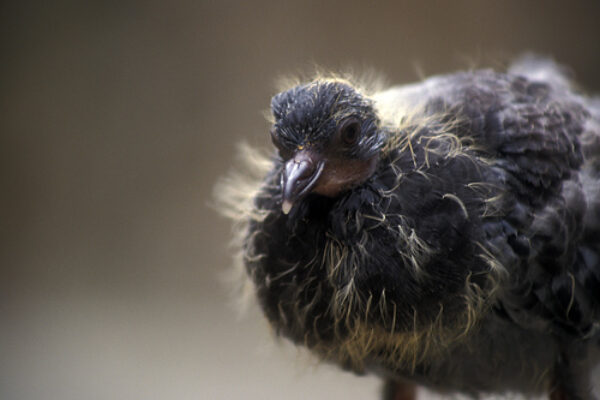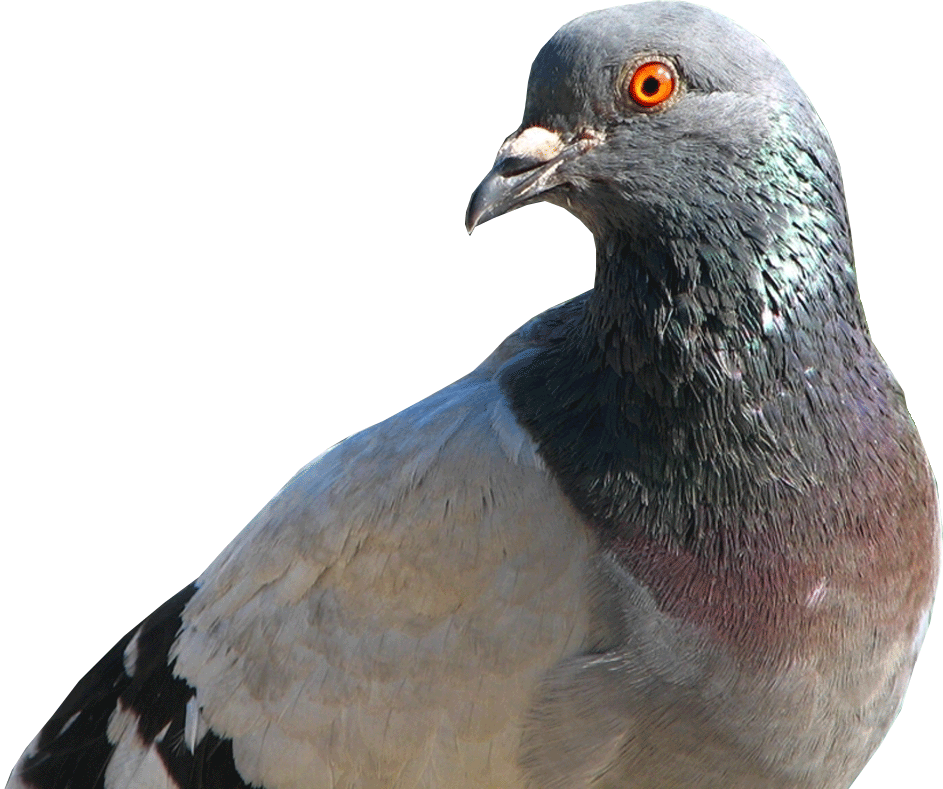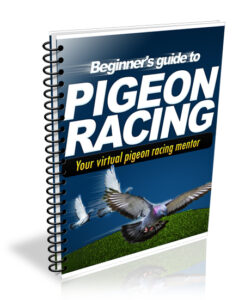An interview with Racing Pigeon Feed Consultant Willem Mulder.
 Who is Willem Mulder and what do you do?
Who is Willem Mulder and what do you do?
My name is Willem Mulder. I am a feed nutrition consultant for a animal feed company. My specialty is racing pigeon feeds.
Why did you write these articles?
I have taken various courses on animal nutrition at Barneveld. Almost 15 years ago I met a customer that had devoted himself to learning all he could on racing pigeon feeds and feeding.
His name was Horst Collenberg from Haltern, Germany. Horst was always busy carrying out scientific studies on his own pigeons and by carrying out various tests had accumulated a wealth of knowledge.
Later, tests were carried out at many German racing pigeon lofts. Horst has taught me a look over all the years I have known him. I have also read and studied many scientific reports in the field of nutrition. In the Netherlands I have also carried out many experiments and have taken theoretical knowledge and put it into practice.
Why did you write these articles?
Nine years ago I was asked by a well known pigeon fancier Steven van Breemen to write an article on feeding racing pigeons for his new online magazine. The internet site was called “Duif 2000” which later became “Winning Magazine”. The fanciers visiting and reading my article expressed a great deal of interest in my article and soon I was writing a new one every month. Some of these articles were translated into English and this led to contacts around the world.
Many questions were asked by these foreign fanciers and I developed feeding plans for countries such as India, South Africa, Thailand, Brazil, England, Australia, New Zealand, Taiwan etc. These feeding plans were adjusted for the different conditions found in the different parts of the world. In this way knowledge around the world was increased and broadened.
What can fanciers learn from these articles?
The purpose of these articles is to give the fanciers information that will help them make fewer mistakes. This will help them to improve the management of their racing pigeons and help take the sport entire sport to a higher level.
Is the advice given in these articles easy to carry out?
I always try to give advice that is easy to carry out. If you make it too difficult or involved than most fanciers will not follow it.
What can you learn from the articles?
It is important to know how a racing (feeding) plan is developed and why. Besides that it is important to know which and how much energy a pigeon uses. Pigeons are top athletes and we have to treat them appropriately.
Just like human athletes we have to know: when to feed carbohydrates, when to feed protein, when to add fatty acids to the diet.After the question is: which carbohydrates, which proteins and which fatty acids, in order to achieve top race results. It is in these areas that many fanciers make mistakes and there is a lot of room for improvement.
When I give seminars the fanciers present learn about the care of their pigeons during the breeding season, the winter, the race season and the moulting season. Which vitamins should we use and why, which by-products and why, how fatty acids are used, the amount of feed to give at the right time to influence success etc.
Name some benefits I will gain from reading these articles?
The pigeon fancier after reading these articles will be better informed and will probably make fewer mistakes. He will adjust the way he feeds his feathered athletes and this will stay healthier. This is my goal. My slogan or mission is: “ to give pigeons a better life”.
However short the life of our animals can be, if they were happy and healthy throughout, that is better for the animal and is something the fancier can savour.
How long will it take for me to see results?
A fancier who takes the advice to heart will see results quite quickly. That could be as soon as 2 to 3 weeks during the rest period or during the rearing of the youngsters. Even during the race season the results can improve in a matter of a few weeks.
Tell us what fanciers think of your articles?
I often get reactions from fanciers; they find that they can learn from my articles. This leads to better care of their animals and often results in to top performances. This is good for both the animal and the fancier.
What reaction do you get from fanciers after a seminar?
After every seminar fanciers approach me. There first reaction often is, “I didn’t know that”, or: “this evening I learned more than I have in the last 10 years about caring for and feeding my pigeons.” Ultimately this is why I write and lecture. I want the pigeons to be better cared for, leading to healthier animals and better performances.
If you would like to learn more about Willem and his writings I highly recommend checking out his pigeon nutrition guide, click here to learn more about it

